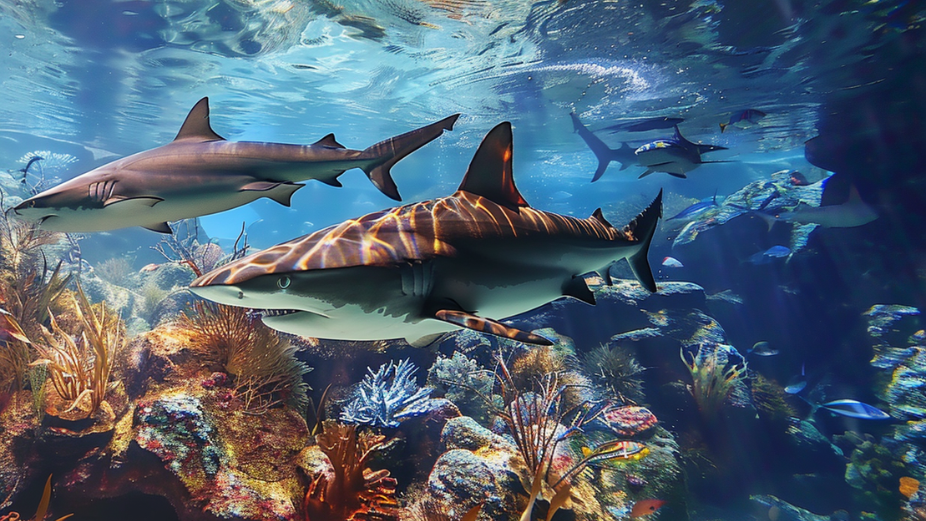
The Fisheries Ministry of the Maldives has announced that it is conducting a study to evaluate whether the current ban on shark fishing should be lifted. This decision comes in response to increasing complaints regarding shark attacks, some of which have resulted in serious injuries and fatalities.
Background of the Ban
Commercial shark fishing in the Maldives began in 1970 and was banned in 2010 due to a decline in shark populations and the popularity of sharks among tourists. This ban also includes the sale and export of all related products. The initial decision aimed to preserve shark populations and support the growing ecotourism industry, which benefits significantly from shark sightings.
Current Concerns and Research
State Minister for Fisheries, Mohamed Muthalib, stated that studies conducted by the Maldives Marine Research Institute (MMRI) have not shown an increase in shark populations. However, the ministry has decided to conduct further research due to the growing concerns over shark attacks.
Despite MMRI’s studies not showing a rise in shark populations, Muthalib shared that his personal experiences and accounts from multiple fishermen suggest otherwise. “From what can be seen with our own eyes, from the accounts of various people, from what has been happening and the information provided by fishermen, shark populations have seen a sharp increase,” he said. He warned that an unusual increase in shark populations could lead to an ecological imbalance, posing a danger to both the marine ecosystem and humans.
Impact on Fisheries and Tourism
Fishermen have repeatedly voiced their difficulties due to sharks, which affect their livelihoods and safety. Additionally, the practice of divers and tourists feeding sharks exacerbates the threat, as sharks may resort to attacking humans if they do not get enough food from natural sources.
From a business perspective, the potential lifting of the shark fishing ban could have substantial economic implications. The Maldives has historically relied on its marine resources, not only for local consumption but also for export. Reinstating commercial shark fishing could open new revenue streams, especially in international markets where shark products are in demand. However, this must be balanced against the tourism industry’s reliance on shark attractions, which draw numerous diving and snorkeling enthusiasts to the islands.
Balancing Ecological and Economic Interests
Shark attacks on humans have raised significant concerns. For instance, a young military officer died following a shark attack during training at L. Kadhdhoo on Sunday. Fishermen have repeatedly voiced their difficulties due to sharks, which affect their livelihoods and safety.
The tourism sector, a cornerstone of the Maldivian economy, benefits greatly from the presence of sharks, which are a significant draw for divers. Any decision to lift the ban would need to carefully consider the potential impact on this sector. Moreover, maintaining the ecological balance is crucial for sustaining the diverse marine life that forms the backbone of the country’s tourism appeal.
Future Steps
The Fisheries Ministry’s ongoing study will play a critical role in shaping future policies regarding shark fishing in the Maldives. The outcomes will need to strike a delicate balance between addressing public safety concerns, supporting the livelihoods of fishermen, and preserving the ecological and economic benefits provided by healthy shark populations. As the Maldives navigates these complex issues, the decisions made will have far-reaching implications for both its environment and economy.












